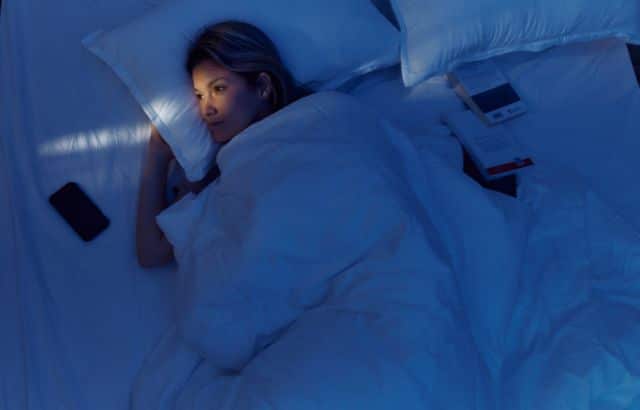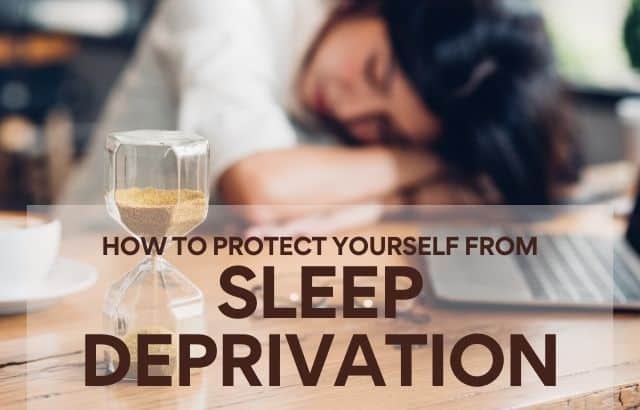In our fast-paced world, sleep deprivation has become a common struggle. If you’re struggling with sleepless nights, you’re not alone. Sleep deprivation solutions can help restore your energy and improve your overall well-being. This guide provides practical tips to protect yourself from the detrimental effects of inadequate sleep.
Table of Contents
Understanding Sleep Deprivation
Before diving into sleep deprivation solutions, it’s crucial to understand what sleep deprivation is. Sleep deprivation occurs when an individual consistently fails to get enough sleep. This can result from various factors, including stress, poor sleep habits, and medical conditions.
Symptoms of Sleep Deprivation
Common symptoms include:
- Persistent tiredness
- Difficulty concentrating
- Mood swings
- Impaired memory
Effective Sleep Deprivation Solutions

Implementing effective sleep deprivation solutions can significantly improve your quality of life. Here are some proven strategies:
1. Establish a Consistent Sleep Schedule
Maintaining a consistent sleep schedule is essential. Go to bed and wake up at the same time every day, even on weekends. This helps regulate your body’s internal clock and improves sleep quality.
2. Create a Restful Environment
Your sleep environment plays a crucial role in how well you rest. Ensure your bedroom is cool, dark, and quiet. Invest in a comfortable mattress and pillows to enhance your sleep experience.
3. Limit Screen Time Before Bed
Exposure to screens before bedtime can interfere with your sleep. The blue light emitted by phones, tablets, and computers can disrupt your circadian rhythm. Aim to avoid screens at least an hour before bedtime. Consider using blue light filters if you must use electronic devices.
4. Practice Relaxation Techniques
Incorporate relaxation techniques into your evening routine. Practices such as meditation, deep breathing exercises, or reading a book can help you unwind and prepare your body for sleep.
5. Watch Your Diet and Exercise
What you eat and how active you are can impact your sleep. Avoid heavy meals and caffeine close to bedtime. Regular physical activity can help you fall asleep faster and enjoy deeper sleep.
Seeking Professional Help

If you’ve tried these sleep deprivation solutions and still struggle with sleep issues, it may be time to seek professional help. Consult a healthcare provider to explore underlying conditions that could be affecting your sleep.
Hirav Shah’s Top FAQs:Sleep Deprivation Solutions

What are some effective sleep deprivation solutions?
Answer: Effective sleep deprivation solutions include establishing a consistent sleep schedule, creating a restful environment, limiting screen time before bed, practicing relaxation techniques, and monitoring your diet and exercise habits.
How can I improve my sleep environment?
Answer: To improve your sleep environment, ensure your bedroom is cool, dark, and quiet. Invest in a comfortable mattress and pillows, and eliminate any noise or light disturbances that could disrupt your sleep.
Why is it important to have a consistent sleep schedule?
Answer: A consistent sleep schedule helps regulate your body’s internal clock, which can improve sleep quality and make it easier to fall asleep and wake up at the desired times.
What are some relaxation techniques to help with sleep deprivation?
Answer: Relaxation techniques that can help with sleep deprivation include meditation, deep breathing exercises, progressive muscle relaxation, and reading a book before bed.
How does screen time affect my sleep?
Answer: Screen time before bed can interfere with your sleep because the blue light emitted by screens can disrupt your circadian rhythm and make it harder for you to fall asleep.
What role does diet play in sleep quality?
Answer: Diet plays a significant role in sleep quality. Avoid heavy meals and caffeine close to bedtime, as they can disrupt your sleep. Instead, focus on a balanced diet that supports overall health and good sleep patterns.
When should I seek professional help for sleep issues?
Answer: You should seek professional help for sleep issues if you’ve tried common sleep deprivation solutions and still experience problems. A healthcare provider can help identify any underlying conditions affecting your sleep and provide targeted treatments.
How can physical activity impact sleep?
Answer: Regular physical activity can improve sleep by helping you fall asleep faster and enjoy deeper, more restorative sleep. However, avoid vigorous exercise close to bedtime, as it can have the opposite effect.
Harnessing Hirav Shah’s Wisdom- Navigating productivity and Personal Growth

1. “Sleep deprivation is the silent productivity killer that many overlook.”
Explanations: Sleep deprivation can significantly impair cognitive function, decision-making, and overall work efficiency, often without being immediately recognized as the root cause of productivity issues.
Strategy: Prioritize quality sleep as a fundamental aspect of your productivity strategy. This means addressing sleep habits and creating an optimal sleep environment.
Execution: Implement a consistent sleep schedule, reduce screen time before bed, and create a calming bedtime routine to enhance sleep quality. For example, use blackout curtains and white noise machines to minimize disruptions.
2. “A well-rested mind is more focused, creative, and productive.”
Explanations: Proper sleep is crucial for cognitive functions like focus, creativity, and problem-solving, all of which are essential for high productivity.
Strategy: Ensure you get 7-9 hours of quality sleep each night to maintain peak mental performance.
Execution: Establish a bedtime routine that promotes relaxation and adherence to a sleep schedule. Use techniques like meditation or reading to wind down before bed.
3. “Lack of sleep reduces your ability to make effective decisions and solve problems.”
Explanations: Sleep deprivation affects the brain’s ability to process information and make sound judgments, which can lead to mistakes and reduced efficiency.
Strategy: Address sleep issues proactively to maintain cognitive function and decision-making abilities.
Execution: Track your sleep patterns and identify any factors that may be disrupting your sleep. Use sleep-tracking apps and consult with a sleep specialist if necessary.
4. “Quality sleep is the foundation of sustained productivity and success.”
Explanations: Without adequate rest, your productivity levels can drop, affecting your long-term success and job performance.
Strategy: Make sleep a priority by integrating sleep-friendly habits into your daily routine.
Execution: Create a sleep-friendly environment by keeping your bedroom dark, cool, and quiet. Avoid caffeine and heavy meals before bedtime to ensure restful sleep.
5. “Sleep deprivation doesn’t just affect your work; it impacts your overall well-being.”
Explanations: Beyond productivity, sleep deprivation can lead to a host of health issues, including stress, anxiety, and weakened immune function.
Strategy: Address sleep deprivation not only to improve productivity but to enhance your overall health and well-being.
Execution: Develop a holistic approach to well-being that includes good sleep hygiene, stress management techniques, and a balanced lifestyle. For instance, incorporate regular physical activity and mindful eating into your daily routine.
Conclusion
Sleep deprivation is a serious issue that can impact your health and well-being. By implementing these sleep deprivation solutions, you can take significant steps toward improving your sleep and overall quality of life. Prioritize your sleep health today!
Call to Action: Struggling with sleep deprivation? Try these solutions to get better rest and feel more refreshed. For personalized advice, consider scheduling a consultation with a sleep specialist.










